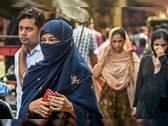Pasmanda Community:

Pasmanda Community has gained attention of many political parties for inclusive growth and eradication of intra caste discrimination.
- ‘Pasmanda’, a Persian term meaning “those who have fallen behind” refers to Muslims belonging to the shudra (backward) and ati-shudra (Dalit) castes.
- It was adopted as an oppositional identity to that of the dominant ashraf Muslims (forward castes) in 1998 by the Pasmanda Muslim Mahaz, a group which mainly worked in Bihar.
- Pasmandas encompass those who are socially, educationally and economically backward and make up the majority of the Muslim community in the country.
- The term “Pasmanda” is majorly used by Muslim associations in Uttar Pradesh, Bihar, and other parts of India to define themselves as Muslim communities historically and socially oppressed by caste.
- Backward, Dalit and tribal Muslim communities are now organising under the identity of Pasmanda. These communities includes:
- Kunjre (Raeen), Julahe (Ansari), Dhunia (Mansuri), Kasai (Qureishi), Fakir (Alvi), Hajjam (Salmani), Mehtar (Halalkhor), Gwala (Ghosi), Dhobi (Hawari), Lohar-Badhai (Saifi), Manihar (Siddiqui), Darzi (Idrisi), Vangujjar, etc.




